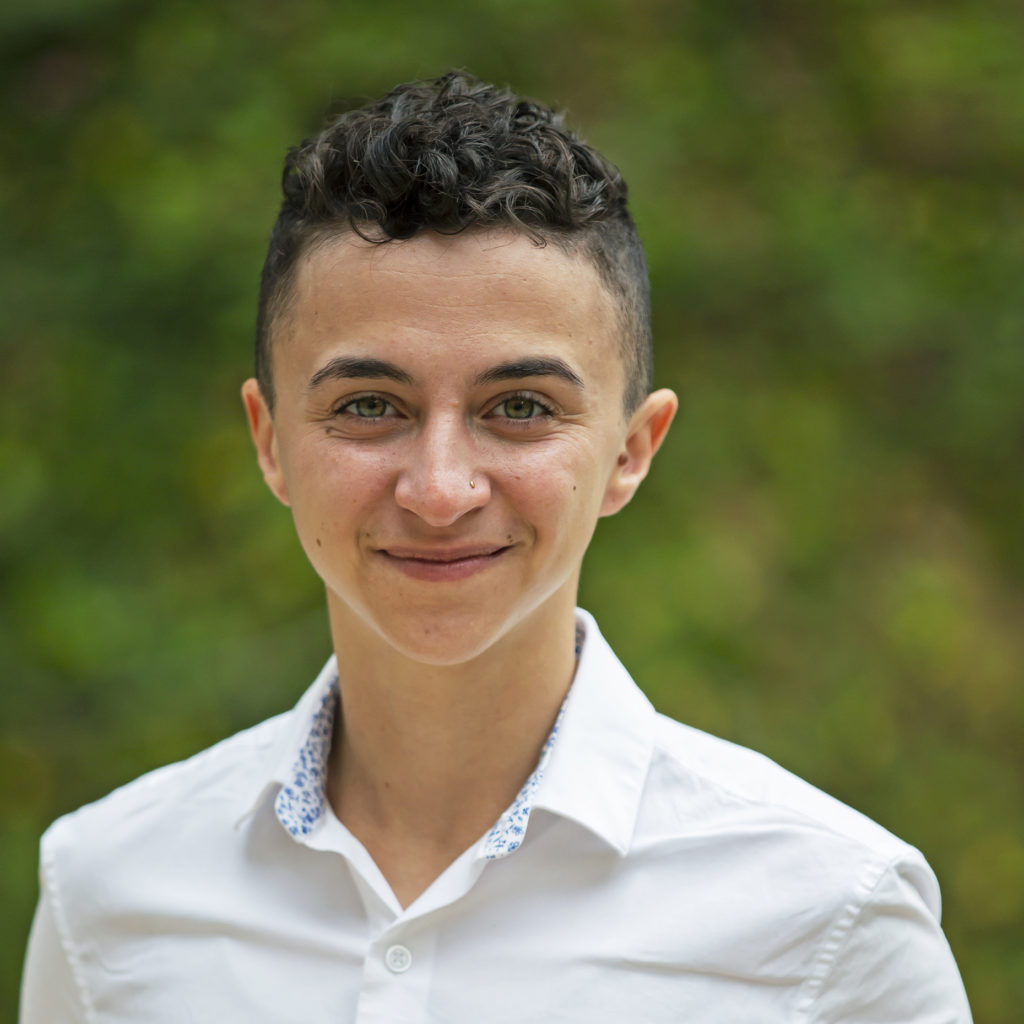
When asked what made them passionate about the work that they do, Danaë Metaxa describes an intrinsic calling to look to the needs of those that scientific design and application neglects.
“If you’re the type of person that exists at some of those intersections, as I am, you start to see the ways in which those assumptions that system designers or that developers have made, they don’t serve you.” said Metaxa. “You start realizing the limitations of those approaches and the short-sightedness, or even active exclusion, of different types of people. And I think once you notice that, at least for me, as soon as I became attuned to that, it was really hard to look away.”
Metaxa, who recently successfully defended their dissertation at Stanford, is slated to join the Comp Info Sci Department in January 2022 as an assistant professor. They worked in the Human-Computer Interaction (HCI) Group while at Stanford, and plan to co-found a new Penn HCI Group with fellow new hire Andrew Head.
“In my research, I develop and deploy methods for studying bias and representation in algorithms and algorithmic content, focusing on high-stakes social settings like politics and employment, and on the experiences of marginalized people,” according to Metaxa’s professional site. “The work I do spans identifying biases in existing systems through building interventions or new systems that try to remedy some of those.”
While at Stanford, they were advised by a computer scientist as well as a communications scholar while completing their P.h.D., and will take on a secondary appointment in the Annenberg School for Communication when they start in the Fall. Metaxa cites Penn’s cross-curricular emphasis as a huge factor in deciding to join the Comp Info Sci team.
“I think there’s a lot of places that talk about interdisciplinarity, but there aren’t as many that follow that up in their actions, and show that that’s actually a central value,” said Metaxa. “Something that I’ve loved as grad student at Stanford has been just the strength of the other students around me, even when they do things that are totally different from what I do, because it lets me learn and grow in new and unexpected ways. And Penn — the overall multifaceted strengths of the University — have been a big appeal for me.”
Going forward, in addition to designing a series of HCI classes for the Penn community, Metaxa also plans to engage more with the practical applications of these technologies in the political sphere.
“I think that, unfortunately, there’s a lack of technical expertise in a lot of our government,” said Metaxa. “So it’s really important that lawmakers and policymakers have technologists to work with, and also, as technologists, that we have that broader impact lense, and consider the political and social and environmental context of the work that we do.”
